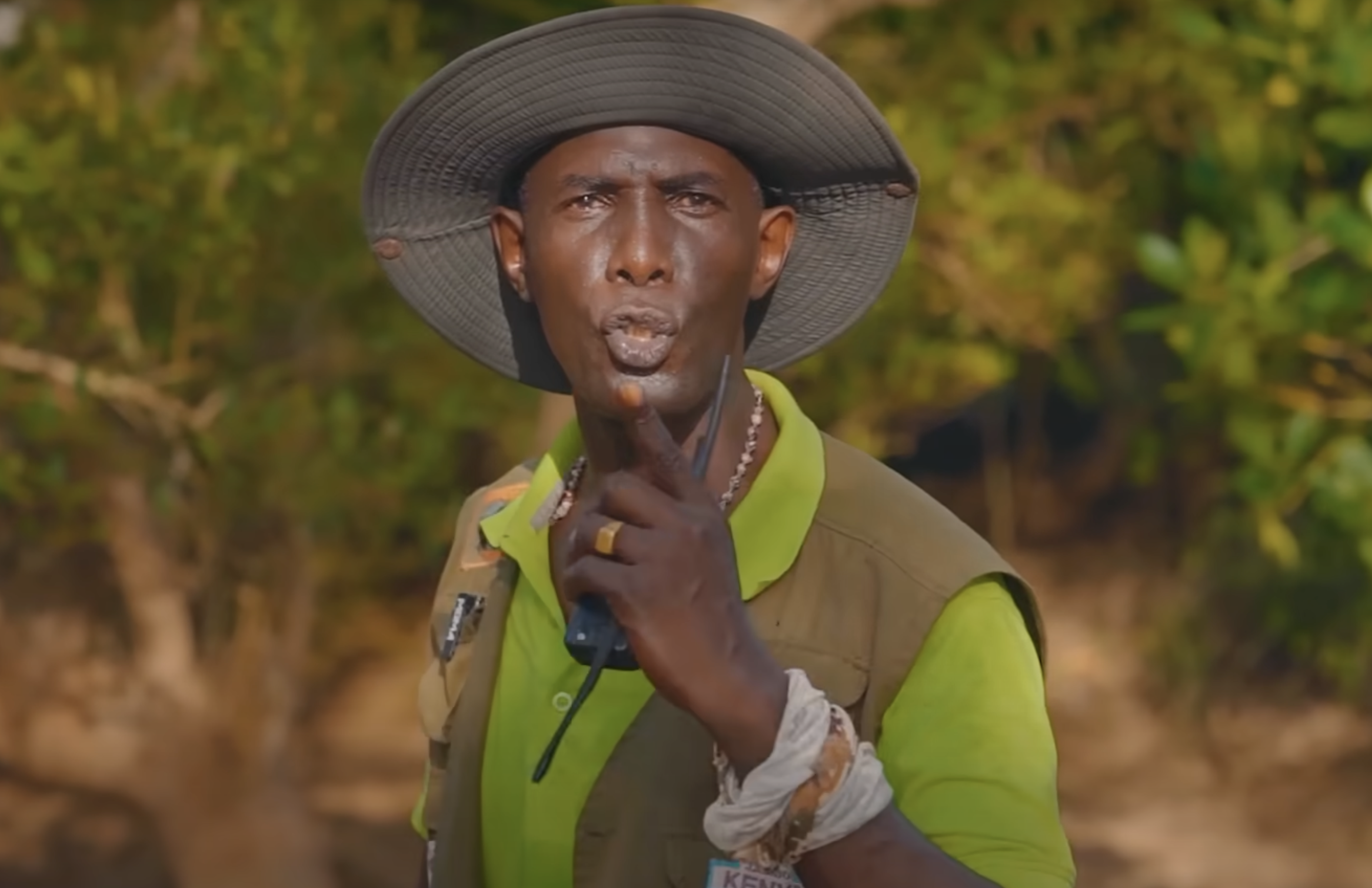Protecting Our Oceans: Gedeng’s Fight for Marine Life in Kenya
The ocean, a vast and enigmatic realm, holds untold wonders beneath its shimmering surface. From vibrant coral reefs teeming with life to colossal whales gracefully navigating the depths, marine ecosystems are a testament to nature’s awe-inspiring artistry. Yet, this delicate balance is under constant threat from human activities, particularly illegal fishing and overfishing. In the heart of Kenya, one dedicated individual, Gedeng, stands as a beacon of hope, tirelessly working to safeguard marine life and champion sustainable practices. This article delves into Gedeng’s inspiring journey, his vital work at the Hippocampus sanctuary, and the critical importance of protecting our precious oceans.
The Ocean’s Silent S.O.S.: Understanding the Crisis
Before we explore Gedeng’s impactful work, it’s crucial to understand the challenges facing our marine environments. Overfishing, the practice of catching fish faster than they can reproduce, is a primary culprit in the decline of fish populations and the disruption of marine food webs. This unchecked exploitation leads to a cascade of negative effects, impacting not only the targeted species but also countless others within the ecosystem.
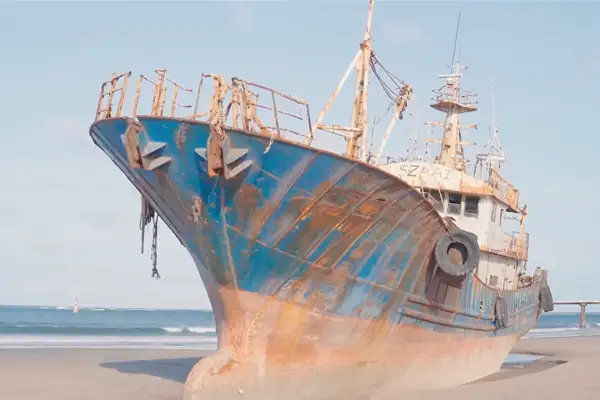
Illegal, Unreported, and Unregulated (IUU) fishing further exacerbates the problem. This clandestine activity undermines conservation efforts, depletes fish stocks at an alarming rate, and often involves destructive fishing methods that decimate habitats. The economic consequences of IUU fishing are also severe, as it robs legitimate fishers of their livelihoods and governments of essential revenue.
The consequences of these destructive practices extend beyond the immediate depletion of fish. Coral reefs, vital nurseries for countless marine species, are damaged by destructive fishing gear. Bottom trawling, a particularly harmful method, scrapes the ocean floor, destroying fragile habitats and releasing carbon stored in seabed sediments, contributing to climate change. The cumulative impact is a significant loss of biodiversity, threatening the very fabric of marine life.
Gedeng’s Calling: A Passion for the Blue
Gedeng’s connection to the ocean runs deep. Growing up in a coastal community in Kenya, he witnessed firsthand the immense beauty and abundance of the marine environment. He also observed the gradual decline, the dwindling catches, and the visible signs of degradation. This firsthand experience ignited a powerful passion within him – a fervent desire to protect the very ecosystem that had shaped his life.
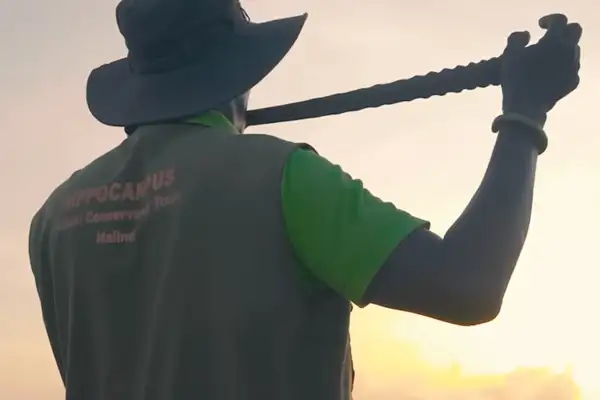
His journey began with a profound curiosity about marine life and a growing awareness of the threats it faced. He sought out knowledge, immersing himself in the intricacies of oceanography, marine biology, and conservation. This dedication led him to the Hippocampus, a sanctuary dedicated to the protection of marine life, particularly the unique and often misunderstood hippopotamus, and the wider biodiversity of the region.
The Hippocampus Sanctuary: A Haven for Hope
The Hippocampus sanctuary, where Gedeng dedicates his time and expertise, is more than just a protected area. It’s a vibrant hub for research, rehabilitation, and community engagement. While its name might suggest a primary focus on hippopotamuses, the sanctuary’s mission extends to the broader marine ecosystem of Kenya, recognizing the interconnectedness of all life within the ocean.
At the Hippocampus, Gedeng actively participates in a range of crucial activities. He is involved in monitoring marine populations, conducting surveys to assess the health of coral reefs, and documenting the impact of illegal fishing activities. His work provides invaluable data that informs conservation strategies and helps policymakers make informed decisions.
Beyond data collection, Gedeng is deeply committed to practical conservation efforts. He assists in the rehabilitation of injured marine animals, ensuring they receive the care they need to return to their natural habitats. He also plays a vital role in patrolling the coastline, identifying and reporting instances of illegal fishing. This direct involvement is critical in deterring destructive practices and holding offenders accountable.
Education and Empowerment: Shaping the Future
Gedeng understands that true conservation extends beyond direct intervention; it requires a shift in human behavior and a deep-seated appreciation for the ocean. To this end, he dedicates a significant portion of his time to educating local communities, particularly the younger generation.
He organizes workshops and outreach programs, sharing his knowledge about marine ecosystems, the impact of overfishing, and the importance of sustainable practices. He uses engaging storytelling and visual aids to bring the wonders of the ocean to life, inspiring a sense of stewardship among those who depend on it for their livelihoods.
His efforts are not limited to formal education. Gedeng actively engages with local fishers, building relationships based on trust and mutual respect. He shares insights on sustainable fishing techniques, the benefits of marine protected areas, and the long-term economic advantages of responsible resource management. By empowering communities with knowledge and practical skills, Gedeng helps them become active participants in conservation, fostering a sense of ownership over their marine heritage.
Tackling Illegal Fishing: A Battle for Justice
One of the most challenging aspects of Gedeng’s work is confronting illegal fishing. This often involves navigating dangerous waters and confronting individuals who operate outside the law. Gedeng’s commitment to protecting marine life fuels his courage in these situations.
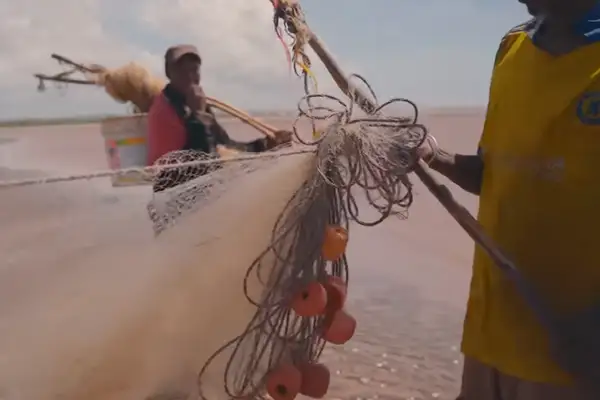
He works closely with local authorities, providing crucial intelligence and evidence to support enforcement efforts. He understands that a multifaceted approach is required to combat illegal fishing, encompassing effective patrols, robust legal frameworks, and community-based monitoring programs. His dedication to this often-perilous aspect of conservation is a testament to his unwavering resolve.
The Hippocampus and Beyond: A Vision for Sustainable Oceans
The work at the Hippocampus sanctuary, spearheaded by individuals like Gedeng, is a vital piece of the global puzzle of ocean conservation. However, the fight to protect our oceans requires collective action on a much larger scale.
Supporting organizations like the Hippocampus is paramount. These sanctuaries provide critical habitats, conduct essential research, and serve as hubs for education and outreach. Their efforts are amplified when individuals and communities actively participate in sustainable practices.
This includes making conscious choices as consumers, opting for sustainably sourced seafood, and reducing our overall environmental footprint. Advocating for stronger marine protection policies and supporting initiatives that combat illegal fishing are also crucial steps.
Join Gedeng’s Journey: Be a Champion for the Ocean
Gedeng’s story is a powerful reminder that every individual can make a difference in the fight to protect our planet’s most vital resource. His dedication, passion, and tireless efforts are an inspiration to us all. He doesn’t just share the beauty of the ocean – he actively fights to protect it, ensuring that future generations can experience its awe-inspiring wonders.
Want to witness Gedeng’s incredible work firsthand and learn more about the challenges and triumphs of marine conservation in Kenya? Watch the embedded video below to join his journey and see the vital efforts being made to safeguard marine life and stop illegal fishing.
This video offers a unique glimpse into the daily realities of ocean conservation, the beauty of Kenya’s marine ecosystems, and the unwavering spirit of those who dedicate their lives to protecting them. Your support, whether through spreading awareness, adopting sustainable practices, or contributing to conservation efforts, can help amplify the impact of individuals like Gedeng and secure a healthier future for our oceans. Let’s stand together to protect our blue planet.
